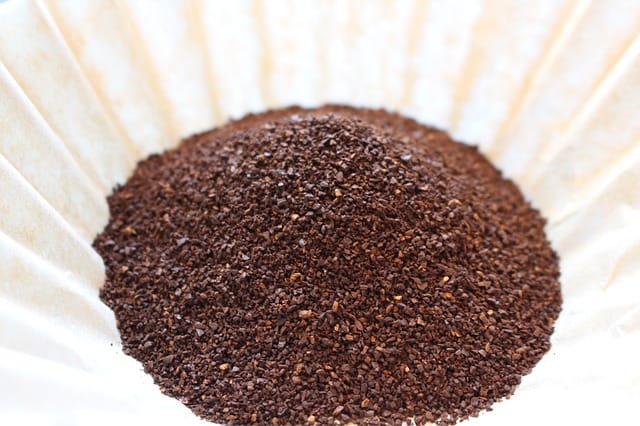If you do not change the oil in your four-stroke lawn mower, and you continue using it normally, you’re putting your mower on a path toward eventual engine damage. This may require replacing the engine to make your mower operational again, or replacing the entire mower may even be required. At minimum, as the oil gets dirty and sludgy from regular use, the engine will run less and less efficiently over time.
This article will help you understand the need to periodically change the oil in your four-stroke lawn mower. Your goal should be to extend the lifespan of your mower to its fullest, reducing the likelihood that your mower will need to be replaced before the end of its natural lifespan.
Why does my lawn mower need oil to function in the first place?
The parts of a lawn mower engine rely on oil for lubrication to prevent moving parts in the engine from generating friction by scraping directly against each other, which causes wear and tear on these parts. Additionally, this friction generates heat, which could cause the engine to overheat during operation, so oil serves an important cooling function.
What happens to the oil while I’m using my mower?
Over the course of regular usage, or even as the mower sits unused in your garage, eventually the oil begins to degrade, losing its antioxidant and detergent properties. And some amount of oil may be burned off during use as well, particularly older oil which will heat up more quickly than newer oil.
Why can’t I just keep adding oil to top it off, instead of having to change it altogether?
Many mowers do not have oil filters, so the older oil that isn’t burned off will gain viscosity or thickness over time from the accumulation of dirt, and as it circulates, the grit in the oil will cause increased wear and tear on the engine and the oil will actually bake onto the parts, reducing their efficiency.
How often do I actually need to change the oil?
Manufacturers will make specific recommendations per model, so consult your manual. For instance, you might hear a recommendation of once a year or after 100 hours of use, whichever comes first, whereas for some models, 25 or 50 hours is the recommendation (and for brand new mowers, you’ll need to change it after the first 5 hours of use).
What if I don’t remember how many hours it’s been since I changed it last?
Check the condition of the oil by removing the dipstick and wiping it on a paper towel. If you see anything on the paper towel that looks like grit or debris, or if your oil is dark black (indicating it’s very dirty and losing its lubricant properties) instead of its original amber color, it’s time for a change.
Do I need to use a special oil for lawn mowers?
You’ll definitely want to closely follow your manufacturer’s recommendations about preferred oil for your model. A good automotive (motor) oil may also be good for your mower’s engine, but some automotive oils might have too high a viscosity for your mower’s engine to function properly, in which case you’ll want a small-engine oil.
Do I need to use additives in addition to oil?
Although you may find yourself pressured to consider using an expensive oil with proprietary additives, most manufacturers do not support the use of these other additives, as the recommended oil already contains detergent additives that are sufficient for the job. For some older mowers, your manufacturer may recommend non-detergent oil, in fact.
Why would you add detergent to the oil?
Detergent oil helps slow down the erosion of metal parts in the engine by breaking down corrosive acids, and it also serves to help keep the internals of the engine clean of debris by breaking down particles of grit or grime before they can accumulate into sludge. This will keep your engine running smoothly.
Do I change the oil if my engine is two-stroke instead of four-stroke?
With a two-stroke engine, you’ll be adding oil in a mixture with the gasoline as you refuel, so in a sense, every time you refuel, you’re actually changing the oil. Pour the correct amount of oil into the gas can, then fill up the gas can, so that when you refuel the mower, you’re ready to go.
What if my lawn mower specifically says I don’t need to change the oil?
In these cases, the manufacturers still expect you to keep the oil topped off. You’ll want to follow the manufacturers’ other recommendations for maintenance and care of your mower very closely, as the steady performance of these engines without an oil change likely relies on the mower staying in good health overall.
What about using vegetable oil instead of motor oil or small-engine oil?
Vegetable oil is never recommended for lawn mowers, since it will rapidly accumulate viscosity in your mower’s non-diesel engine, gumming up the parts. This in turn will cause your engine to quickly overheat and you’ll quickly damage your engine irreparably, which would certainly ensure you never have to change that mower’s oil again!
So there’s no eco-friendly option?
Arguably the eco-friendly option is to not have a lawn. But if that’s not an option for your situation, look into current recommendations for electric lawn mowers, which don’t use gasoline or engine oil – or you can always use a good old-fashioned standard push mower that has no engine at all.
What do I do with the old oil after I’ve removed it from the lawn mower?
Never dispose of old oil by pouring it down a sewer drain, putting it in the garbage, or dumping it on the ground; it’s unsafe for the environment and illegal in many places. Store it safely in a lidded container, then locate a recycling facility that will accept it; you might even be able to arrange a pick-up.


